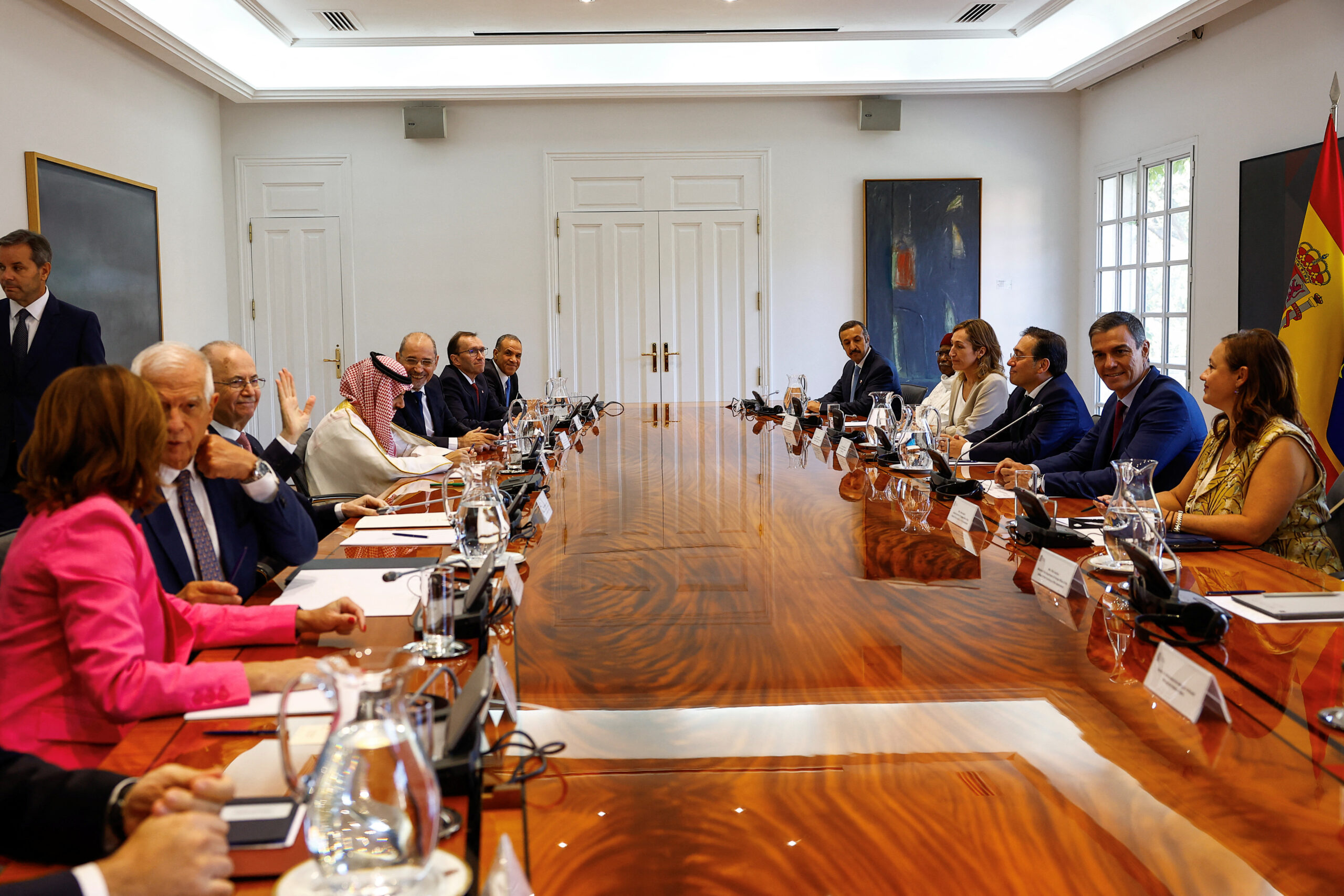
European and Muslim nations convene in Spain to reassess the timetable for Palestinian statehood
Spain, which convened a high-level conference on Friday including major Muslim and European nations to discuss strategies for ending the Gaza war, urged for a well-defined timetable for the global community to execute a two-state resolution to the Israeli-Palestinian dispute.
We convene to rally further support for the cessation of the conflict in Gaza, seeking a means to escape the perpetual cycle of violence between the Palestinians and the Israelis… That path is unambiguous. According to Spanish Foreign Minister Jose Manuel Albares, the adoption of the two-state solution is the sole viable approach.
Among those present were his colleagues from Norway and Slovenia, Josep Borrell, the head of European Union foreign policy, Mohammad Mustafa, the Palestinian Prime Minister, and representatives from the Arab-Islamic Contact Group for Gaza, which comprises Egypt, Saudi Arabia, Qatar, Jordan, Indonesia, Nigeria, and Turkey.
According to Albares, the participants, excluding Israel, shown a distinct readiness to transition from mere words to tangible actions and to progress towards a well-defined timeline for the successful execution of a two-state solution. This process would begin with Palestine becoming a member of the United Nations.
Israel’s exclusion from the invitation was due to its non-involvement in the contact group, according to Albares. However, he expressed his strong desire to have Israel present at any forum where peace and the two-state solution are deliberated.
On May 28, Spain, Norway, and Ireland officially acknowledged the existence of a consolidated Palestinian state governed by the Palestinian Authority, which includes the Gaza Strip and the West Bank, with East Jerusalem as its designated capital. Alongside them, 146 out of the 193 member states of the United Nations currently acknowledge the existence of Palestinian statehood.
The Spanish Prime Minister, Pedro Sanchez, has consistently underscored the coexistence of two independent states within the former Mandatory Palestine as the most feasible approach to achieving peace in the region.
While a two-state solution was proposed during the 1991 Madrid Conference and the 1993-95 Oslo Accords, the peace process has remained stagnant for many years.
Nevertheless, the quest for a nonviolent resolution has been heightened by the 11-month-long conflict in the Gaza Strip between Israel and the Palestinian terrorist organizations Hamas – the most violent incident thus far in the whole struggle – together with the persistent bloodshed in the occupied West Bank.
Israel seized control of the West Bank, which includes East Jerusalem, after the 1967 Middle East war and has maintained occupation continuously, with the presence of growing Jewish communities adding complexity to the situation. In 1980, Israel included East Jerusalem into its territory, a decision that was generally not acknowledged on the world stage.
Furthermore, Israel emphasizes that assurances regarding its security are of utmost significance.
According to Norwegian Foreign Minister Espen Barth Eide, the summit additionally aimed to address the dismantling of Hamas, the governing body in Gaza before the conflict, and the establishment of diplomatic relations with Israel and some other countries, particularly Saudi Arabia.
All Categories
Recent Posts
Tags
+13162306000
zoneyetu@yahoo.com



